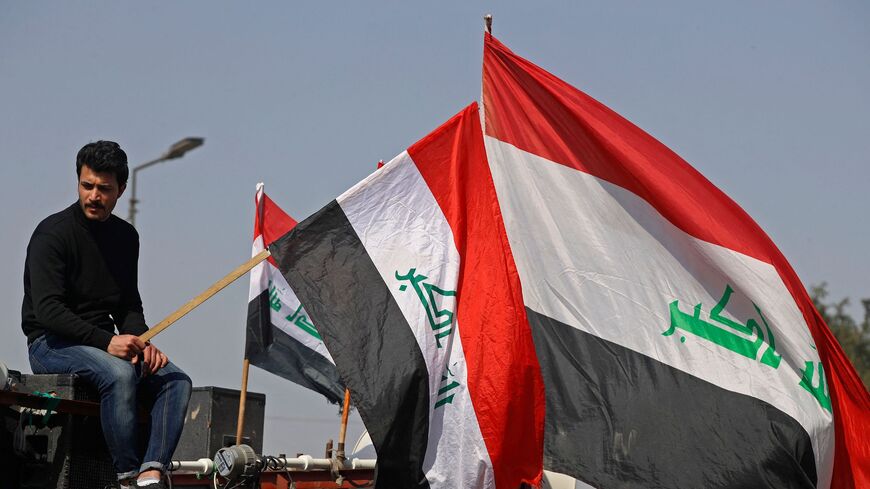Protests continued in Iraq on Tuesday in opposition to a controversial amendment to the country’s electoral law that critics say will hurt smaller political parties and independents.
Background: The amendment to Iraq’s Provincial Council Elections Law, which governs regional elections, was first read in parliament in February. The amendment was proposed by the ruling Coordination Framework political bloc that includes Prime Minister Mohammed Shia al-Sudani. The amendment adopts the Sainte-Lague method, which is a party-list proportional representation system, to allocate seats in provincial parliaments. It also increases the size of electoral districts and stipulates just one electoral district per province. These rules were in place for Iraq’s last provincial elections in 2013.
The amendment contrasts with the current law that uses a multiple-circle system to allocate votes to individual candidates — not political parties. The current law was passed in 2020 in response to the nationwide Tishreen protests that began the year prior. The protests resulted in more independent political actors emerging. The 2020 law also increased the number of electoral districts in each province.
Many smaller political actors believe the amendment will benefit larger Iraqi parties at their expense, Al-Monitor Iraq contributor Ali Mamouri reported in February.
Protests have continued throughout parliament’s consideration of the amendment. The Associated Press reported that hundreds of people protested the amendment in Baghdad in February. Protests also occurred on Saturday ahead of parliament’s vote on the amendment.
The amendment passed on Monday in a 206-12 vote, according to the AP.
The protests have not been limited to Baghdad. The Iraqi news outlet Shafaq reported that there were protests on Tuesday in Nasiriyah in the southern Dhi Qar province. Security forces dispersed the protesters and allegedly burned their tents, according to the outlet.
Why it matters: The controversy comes at a fragile time for Iraq. The economic crisis in Iraq is worsening, as prices of necessities continue to rise.
In late August, violent clashes broke out between supporters of Shiite cleric Muqatada al-Sadr and Coordination Framework supporters as well as Iran-backed militias. The violence left at least 30 people dead. Sudani became prime minister in October after months of political wrangling. Iraq’s last parliamentary elections took place a year before he came into office.
What’s next: Iraq’s next provincial elections are scheduled to be held on Nov. 6.







